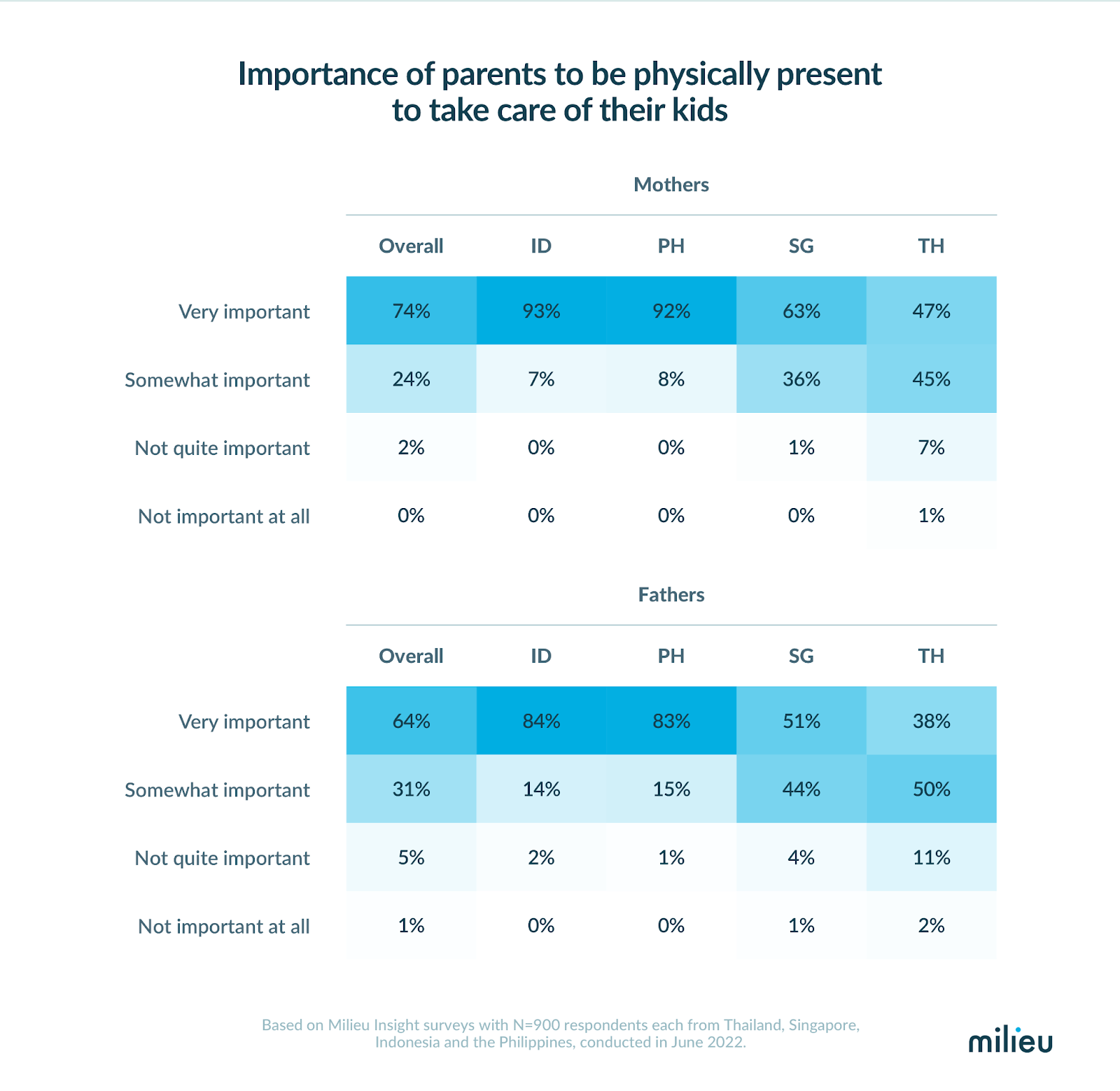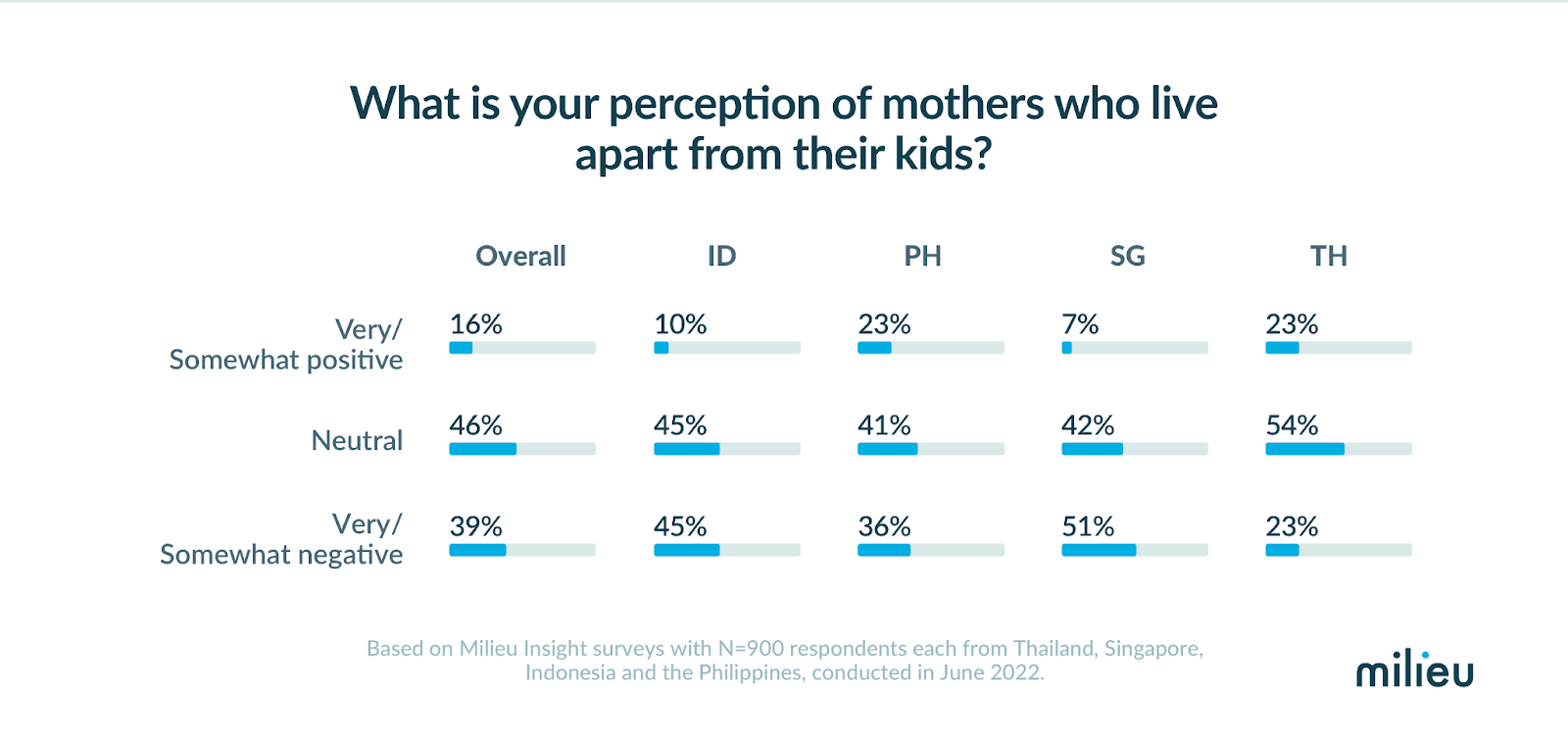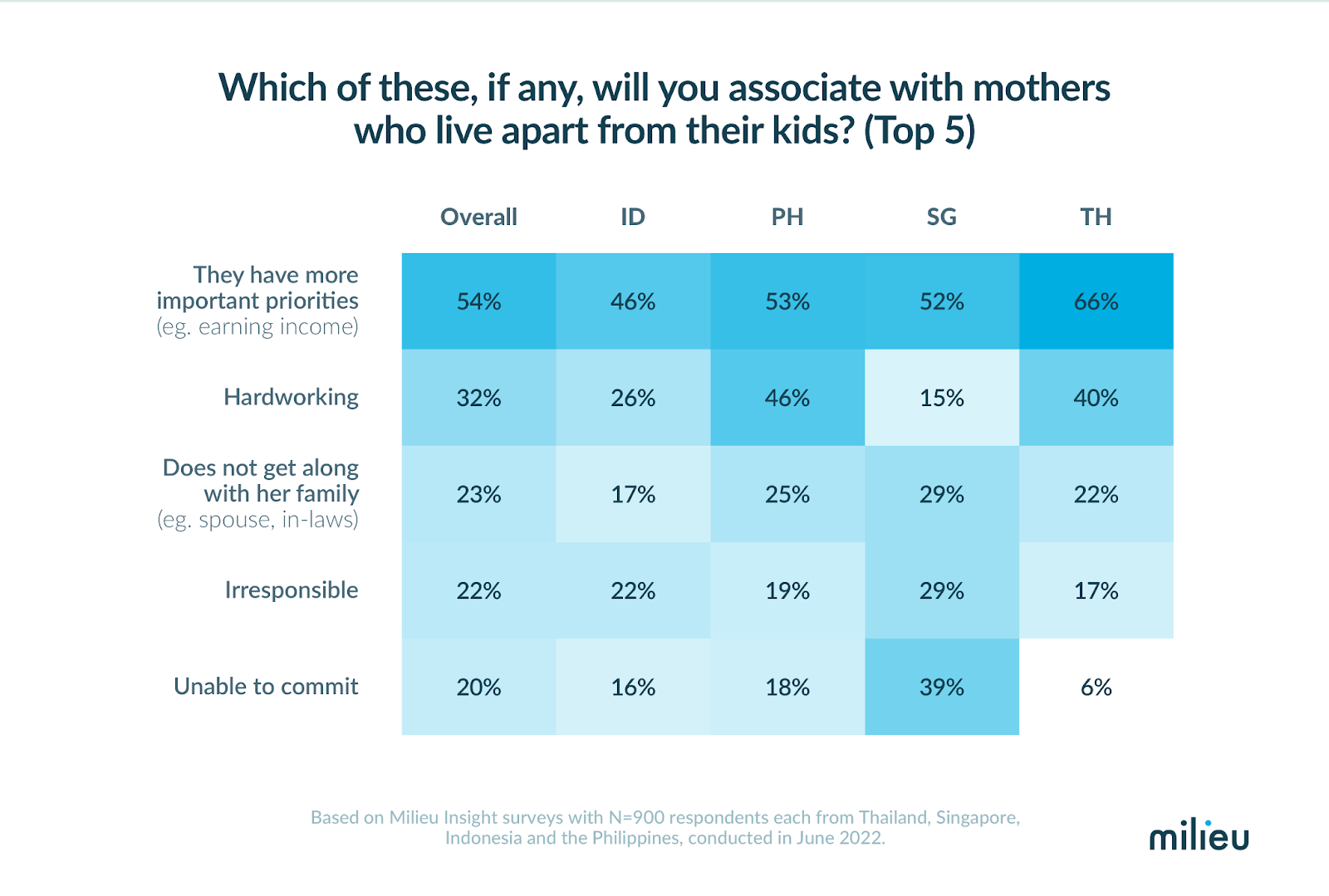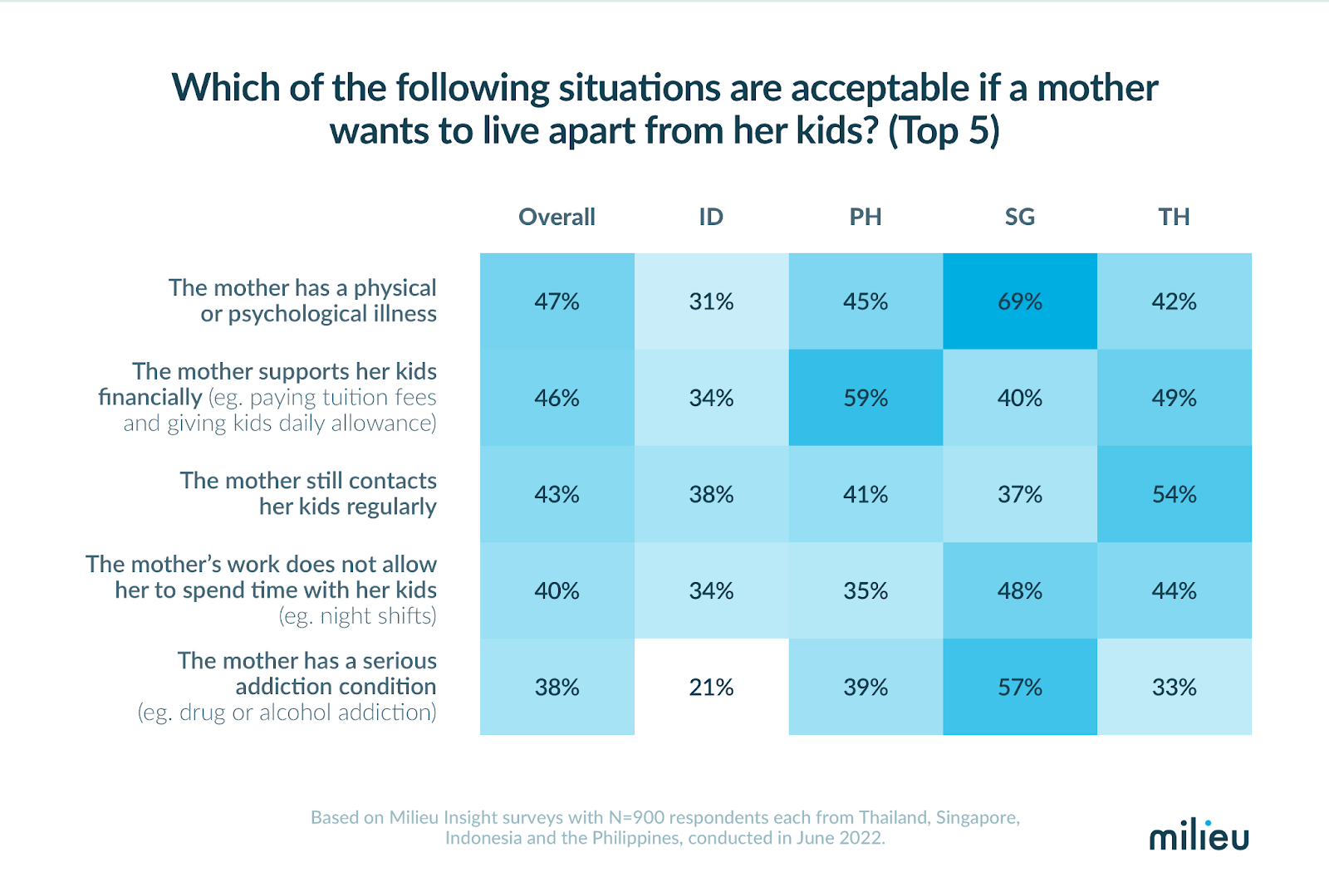‘Pink Penalty’: pressure on SG moms apart from kids

While women are traditionally seen as the primary caregiver of children, their roles at home have evolved as more opportunities are presented to women elsewhere. In fact, 50% of Southeast Asians surveyed think that it will become more common for mothers to live apart from their children in the future. In our study, we find out Southeast Asians’ opinions of mothers who choose to do so and what makes this move acceptable. The survey was conducted with N=900 respondents each from Thailand, Singapore, Indonesia and the Philippines in June 2022.
Fathers get more leeway if they choose to live apart from their children
Despite more women being in the workforce today, the split of domestic responsibilities between men and women is still unequal, with this APEC (Asia-Pacific Economic Cooperation) study finding that women in the Asia Pacific region are spending 3.2 times more time on unpaid domestic responsibilities compared to men. The burden of care work at home still largely rests on the shoulders of women.
98% and 95% of Southeast Asians find it very or somewhat important for mothers and fathers respectively to be physically present to take care of their children. However, those who said that it was ‘very important’ for fathers to be physically present was lower across all the countries - on average 64% indicated so, versus 74% for mothers

If a choice had to be made, 51% strongly or somewhat agreed that “It is better for mothers, instead of fathers, to be physically present to take care of their kids”. 29% said that they were ‘neutral’ about this statement, while 16% strongly or somewhat disagreed.
This reflects Southeast Asians’ expectations on women to be primarily responsible for caregiving duties. Meanwhile, fathers are given more leeway to pursue their goals or aspirations outside of homes.
More negative sentiments towards mothers who live apart from their children, especially in Singapore and Indonesia
46% are neutral towards mothers who live apart from their children and 39% have a somewhat or very negative impression; only 16% view them positively.

Cultural differences across Southeast Asia can be observed here - negative sentiments are highest in Singapore (51%), where mothers living apart from their children is not the norm, likely due to its much smaller geographical size and concentration of job opportunities.
In Thailand and the Philippines where sentiments tend to be more positive, 46% and 40% respectively associate this group of mothers with ‘hardworking’, while only 26% and 15% in Indonesia and Singapore shared the same sentiments.

When is it okay to live apart from your children?
Respondents were asked what situations are acceptable for a mother to live apart from her children and these are our observations:
- Higher tolerance towards fulfilling financial support in the Philippines and Thailand (‘The mother supports her kids financially’ - 59% and 49% respectively)
- Those in Singapore tend to accept such arrangement only in urgent or dangerous situations - ‘The mother has a physical or psychological illness’ (69%) and ‘The mother has a serious addiction condition (eg. drug or alcohol addiction)’ (57%)

Oftentimes, the identity of a mother (along with responsibilities) is tied closely with that of being a wife and/or a mother, and her individual identity often takes the back seat. Among respondents surveyed, only 25% find it acceptable if the mother were to choose to do so to pursue her ambitions. In fact, it has been so normalised for women to give up their careers for their children that these difficult decisions are taken for granted.
More compassion and respect needed
One should not be too quick to judge - the choice to live apart from their children is shaped not only by personal choice, but also economic, socio-cultural and political factors. 73% and 59% in Thailand and the Philippines think that it will become more common for mothers from their countries to live apart from their children. There is also a need for more awareness towards the double standards that societies hold for fathers as opposed to mothers. As societies work towards equal gender rights, how can we set the right foundations to ensure that mothers are given the space to balance their roles?

Author
Milieu Team
At Milieu, we’re a team of curious minds who love digging into data and uncovering what drives people. Together, we turn insights into stories—and stories into action. We also run on coffee, deadlines, and the occasional meme.
.avif)

.png)
.png)
.png)

